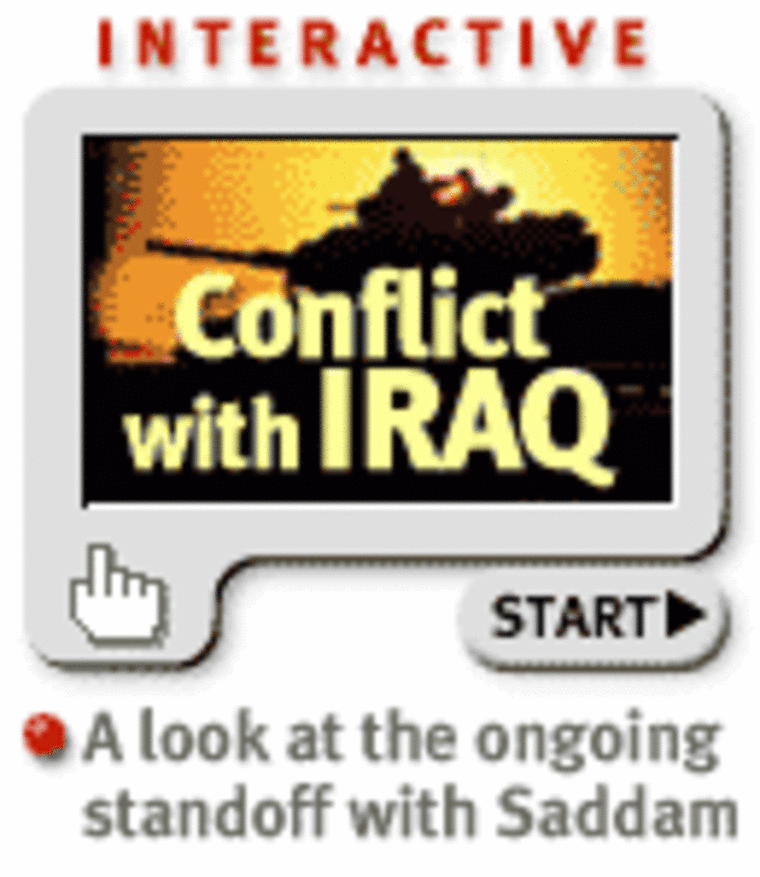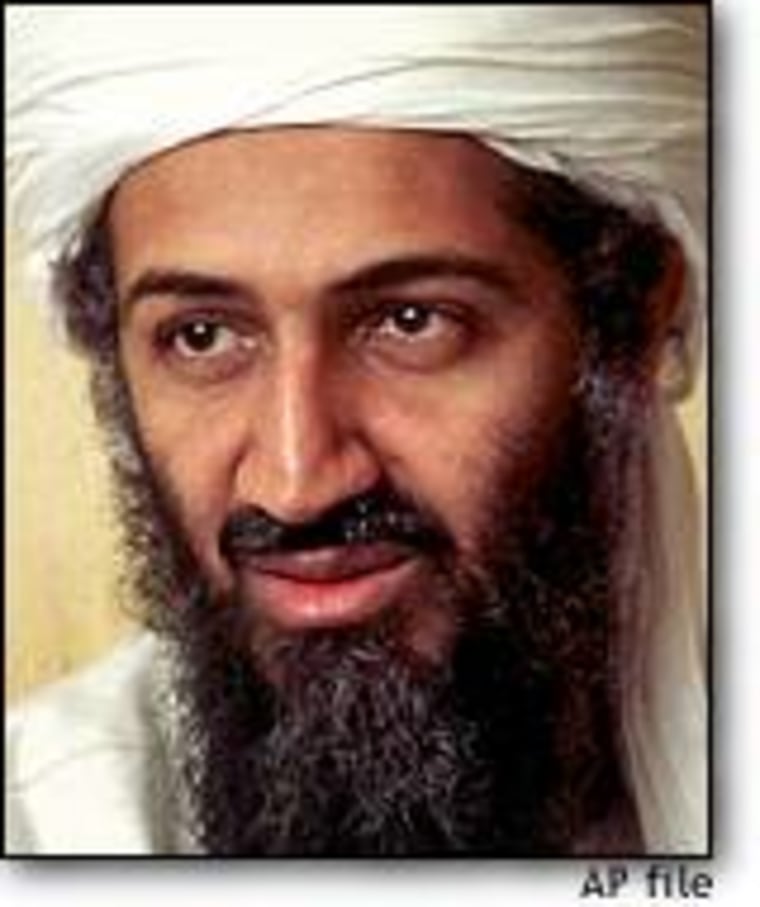For the second time in less than a month, “evil” has raised its ugly voice just as momentum began to gather behind America’s effort to oust Saddam Hussein from Iraq. First came confirmation from North Korea’s psychotic regime that it has nuclear weapons, not to mention the ballistic means to deliver them. Now, the man who killed more Americans in a single stroke than any other taunts us with an audio tape urging more such attacks. The line from Washington - that he doesn’t matter - is wearing thin.
In its effort to prepare for the day that Osama bin Laden resurfaced, the Bush administration has followed the classic pattern of grief first identified in Elisabeth Kubler-Ross’ “On Death and Dying.” Even as they denied what was clear to this reporter last winter - that the United States had failed to prevent the al-Qaida chieftain from escaping to safety during the Battle of Tora Bora - stage one - denial - began:
“Sure, we’d like to have seen him in irons today, but he will be in irons in due course, one way or the other.”
— Secretary of State Colin Powell, speaking to State Department press corps, Dec. 16, 2001.
Stage two, anger, followed a few months later.
“I’m not ashamed to say we don’t know. We don’t know ... What has taken place has been, under Gen. Franks, a very successful effort in Afghanistan.”
— Secretary of Defense Donald Rumsfeld, April 18, 2002, Pentagon briefing.
Anger didn’t last long, perhaps because it looks an awful lot like frustration. And so, before long came stage three - bargaining - as the administration began claiming that the fate of one man, even one who is the most notoriously evil and messianic figure since Adolf Hitler, simply doesn’t matter:
Bin Laden has “met his match” and “may even be dead,” and “I truly am not that concerned about him.”
— George W. Bush, Washington Post, April 27, 2002
WELCOME TO STAGE 4
Stage 4, of course, is depression. Within the confines of America’s intelligence community, depression. Inside the Pentagon, at the White House, depression. In places as disparate as New York City fire houses and the suburban homes of Trade Center office workers, depression. In the office of Pakistan’s dictator, Pervez Musharraf, who spoke confidently last fall that bin Laden is “probably dead,” depression.
This is as it should be. Until October, when al-Qaida and its allies re-emerged after months of silence to mount attacks around the world, a certain smugness could be excused when it came to the Big O. So what, U.S. officials would tell me, if he’s alive and dying slowly for lack of kidney dialysis in some underground bunker in northern Pakistan? We’ve destroyed his network and his ability to plan attacks.
“Al-Qaida remains our most immediate and serious threat despite the damage we have done to their network in Afghanistan and elsewhere,” Tom Ridge, the president’s adviser on homeland security, told an audience in Europe last Thursday — the day before the U.N. Security Council vote on whether to go to authorize steps that may lead to war with Iraq. “The recent bombing in Bali, the attack on the French oil tanker, the murders of Europeans in Pakistan, and the killing of a Marine in Kuwait suggest that this organization retains the capability to orchestrate attacks and to inspire sympathizers.”
Has anyone noticed a disconnect here?
AGAIN, WE ASK, WHY NOW?

As this column and many other outlets have been reporting for months, there is deep division within the Pentagon, State and intelligence communities about the wisdom of moving against Saddam Hussein’s regime right now given the al-Qaida rebound.
“It is a question of priorities,” a senior Navy official told me recently. “Do you risk destroying the relationships we need to dig al-Qaida out of all of its holes if you topple an Arab regime — even an ugly, dangerous Arab regime?”
No one I spoke with argued that, ultimately, Iraq would not be on any reasonable person’s list of dangerous regimes that should be dealt with. (And anyone who has read this column for more than a year knows that reversing the titanic error made by this president’s father in 1991 is a conviction of mine).
But there is a good deal of dissent among experienced, intelligent policymakers and soldiers of all kinds over doing it now, with the serpent of Sept. 11 still slithering — and recording his forked-tongued words for the purpose of recruiting yet another generation of “martyrs.”
THE GOOD NEWS
Silver linings exist almost anyplace if you look hard enough. Here’s one: the fifth and final stage: acceptance.
The Iraq war train that left the station last Friday may be bound, inexorably, for Baghdad. If it is, so be it. Even Iraqis at this point must be saying, “enough already, let’s just get it over with.”
But if this administration, which took so long to accept the fact that (as Thomas Friedman brilliantly pointed out today) in a world with only one superpower, “the U.N. Security Council becomes even more important, not less,” perhaps there is hope that the bigger picture will break through the clouds.
The Bush administration was right in at least one sense in its dealings with bin Laden: Whether that actually is his voice on the most recent tape is irrelevant. His followers will believe it is, America is left to prove a negative. Thus: he speaks, therefore he is.

Perhaps, faced with irrefutable evidence that the most dangerous man on earth is not, in fact, in Baghdad but broadcasting to his army of zealots from an unconcealed location, the Bush administration will recognize that it is not bin Laden, the man, whom it must defeat but bin Laden, the idea. Will an attack on Saddam right now be an attack on that idea, or would it be more prudent to let the U.N.’s inspectors hold Iraq in abeyance for a year or two while America gets on with the unfinished job of bringing justice to those who died on Sept. 11, 2001?
Mail your thoughts to Michael Moran.
